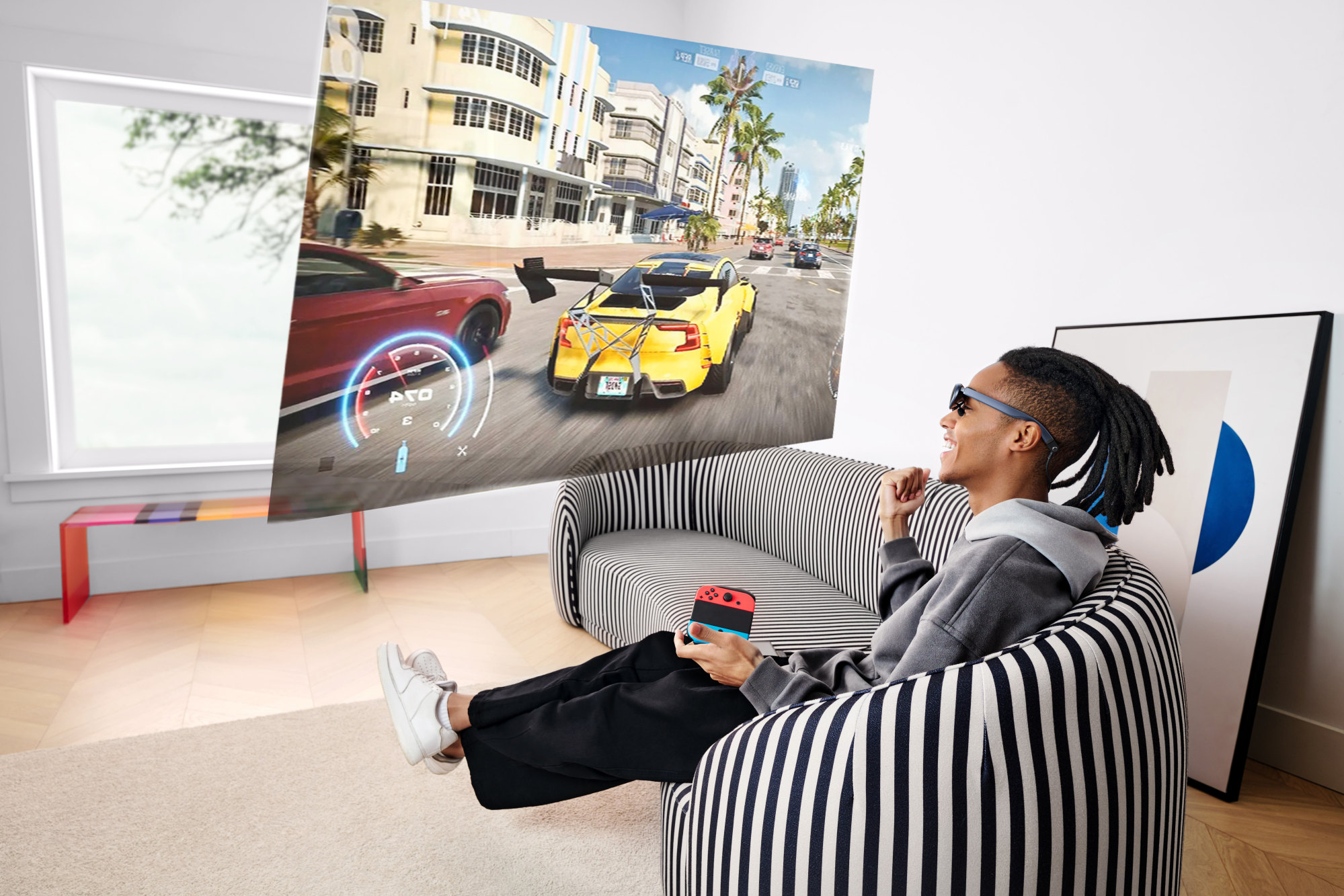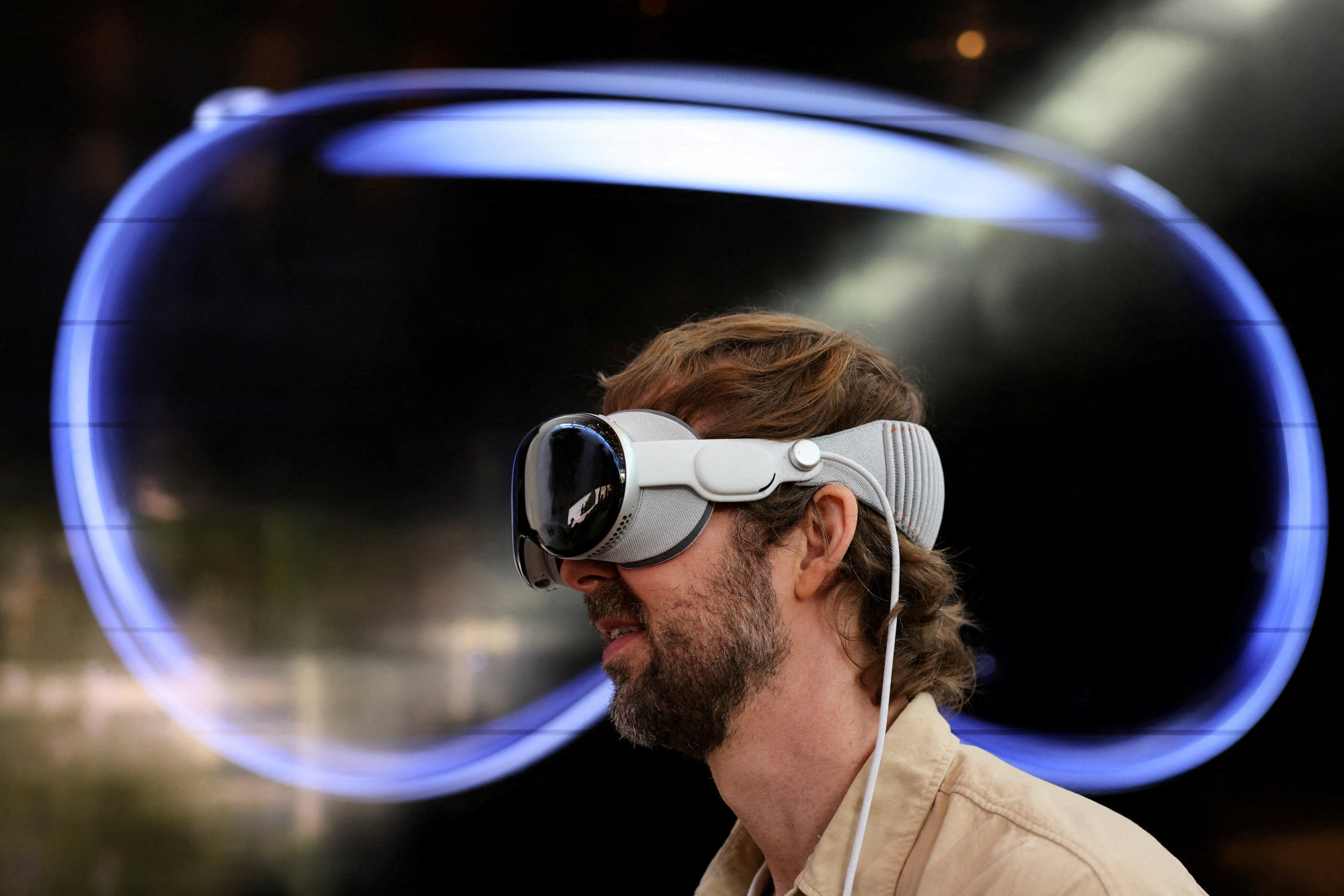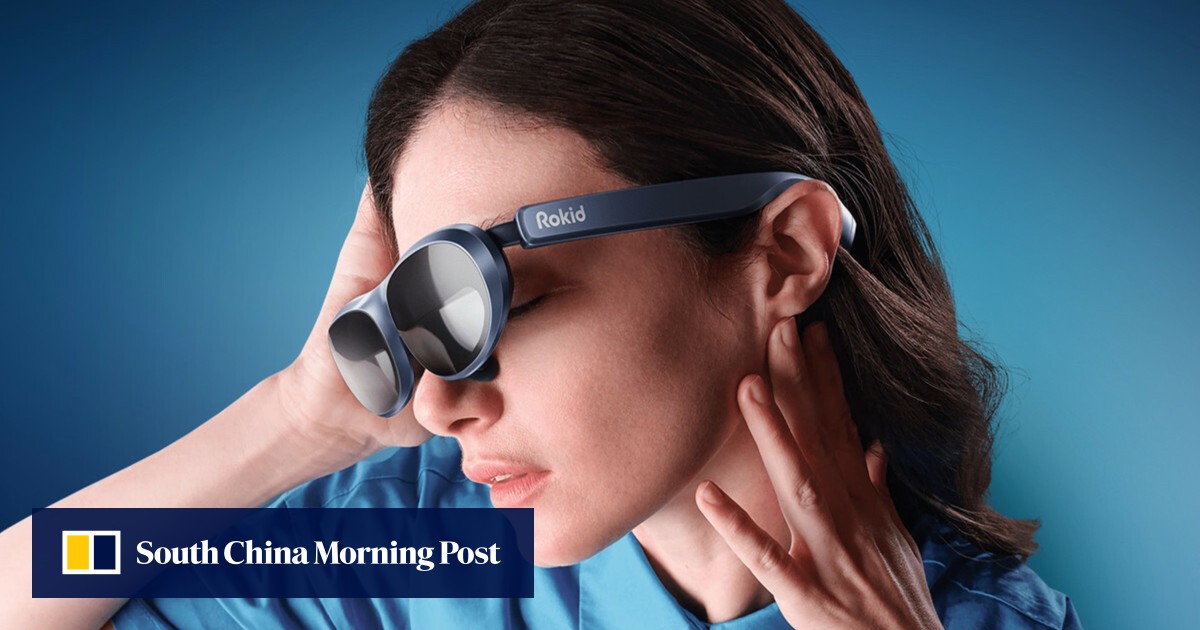“We’re very happy that Apple got into the industry,” Zhu told the South China Morning Post, referring to XR – also the catch-all term for AR, VR and MR technologies. “This [initiative] will mobilise the whole developer ecosystem.”

Zhu’s assessment of the XR industry after the Vision Pro’s release shows how the stakes have increased for other companies to somehow match or even surpass the features and consumer appeal of Apple’s first new product category since 2015.
After another lacklustre year for AR and VR headset shipments in 2023, tech research firm IDC has forecast the market to rebound this year, growing 46.8 per cent year on year on the back of Apple’s Vision Pro launch, new hardware from Meta Platforms and the growing presence of smaller companies.
The market is expected to reach 30.3 million units globally by 2027, up from about 8.5 million last year, according to IDC.

The Vision Pro, which Apple markets as a “spatial computer”, is an MR device that enables users to integrate digital media with the real world, while interacting with the system via motion gestures, eye tracking and speech recognition.
Prices for the Vision Pro, which weighs between 600 and 650 grams (21.2–22.9 ounces), start at US$3,499.
By comparison, Rokid’s Max AR glasses, which weigh 75 grams, currently cost US$379 a pair, according to the company’s website.

“Rokid wants to popularise AR products,” company chief Zhu said. “We want to make products that people would not only like, but also have easy access to and could afford.”
With the growing interest in XR gear, Zhu said Rokid aims to double unit sales of its AR devices to around 400,000 this year, from nearly 200,000 in 2023.
In January alone, Rokid saw sales surge for its Max glasses, the second-generation of its AR glasses for consumers, on the back of the attention brought by Apple to the XR industry, according to Zhu.
He said the company now has more than 2,200 developers making applications for its ecosystem. They have already launched more than 200 apps, from gaming to streaming and entertainment content, for Rokid’s AR glasses.
China augmented reality start-up Rokid gets US$70 million in new funding round
China augmented reality start-up Rokid gets US$70 million in new funding round

